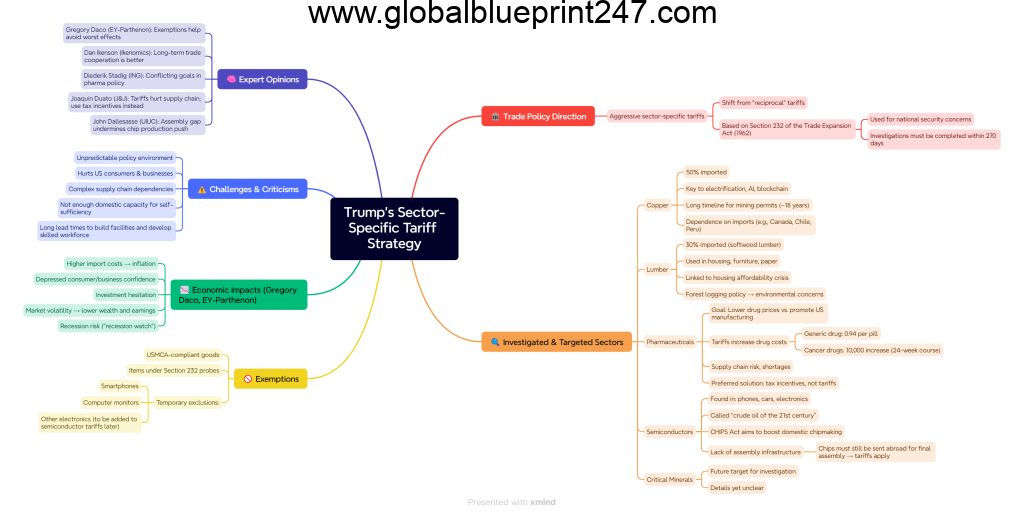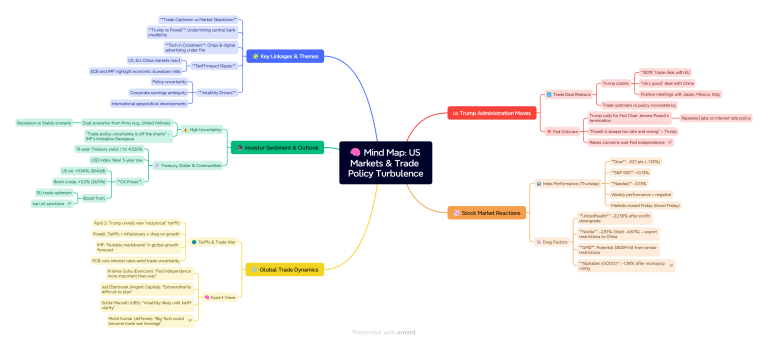
President Donald Trump is escalating his trade strategy by shifting from broad “reciprocal” tariffs to sector-specific tariffs under Section 232 of the Trade Expansion Act of 1962, a provision that allows tariffs for national security reasons.
🔍 Key Sectors Under Investigation
- Copper: A vital resource for electrification and tech industries; the U.S. imports ~50% and lacks domestic refining capacity.
- Lumber: Crucial for homebuilding; 30% imported. Tariffs may worsen the housing crisis.
- Pharmaceuticals: Tariffs clash with Trump’s goal to reduce drug prices; could raise health costs and risk supply shortages.
- Semiconductors: Chips are vital across industries; despite U.S. manufacturing incentives, lack of assembly capacity means continued reliance on foreign assembly and potential tariff exposure.
- Critical Minerals: Future probe targets, but specifics are yet unclear.
🛑 Exemptions & Temporary Exclusions
- USMCA-compliant goods
- Items currently under Section 232 investigations
- Recently exempted: smartphones, monitors, and electronics — though this may be temporary before inclusion in semiconductor tariffs.
📉 Economic & Strategic Concerns
- Tariffs may lead to higher prices, inflation, reduced economic activity, and recession risks.
- Economists warn against unpredictable policy changes that undermine business and consumer confidence.
- Critics argue the U.S. lacks the infrastructure, workforce, and time to become fully self-reliant, and tariffs may hurt rather than help domestic industries.
- Experts recommend tax incentives and strategic trade partnerships over tariffs to strengthen U.S. manufacturing and supply chains.
Source: CNN


